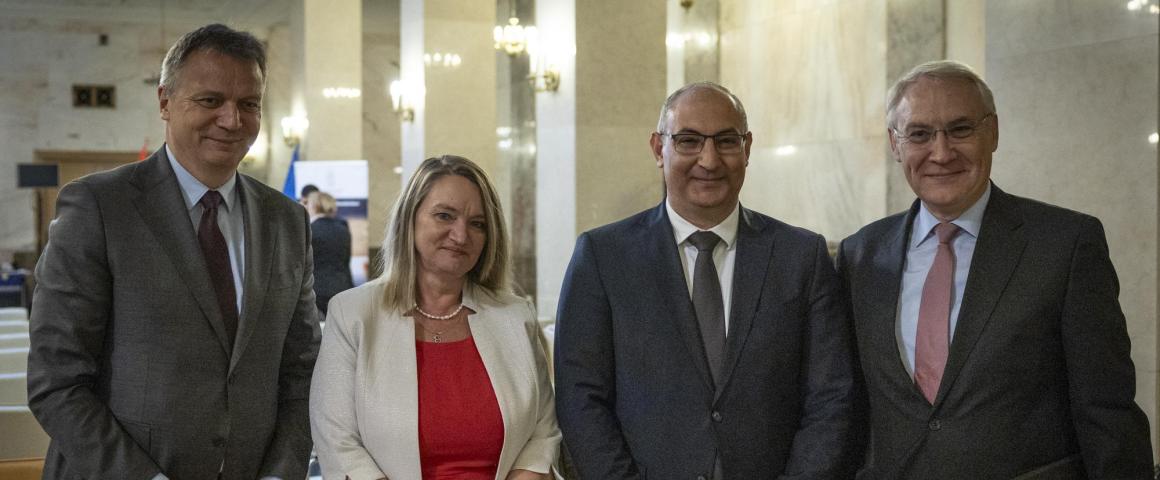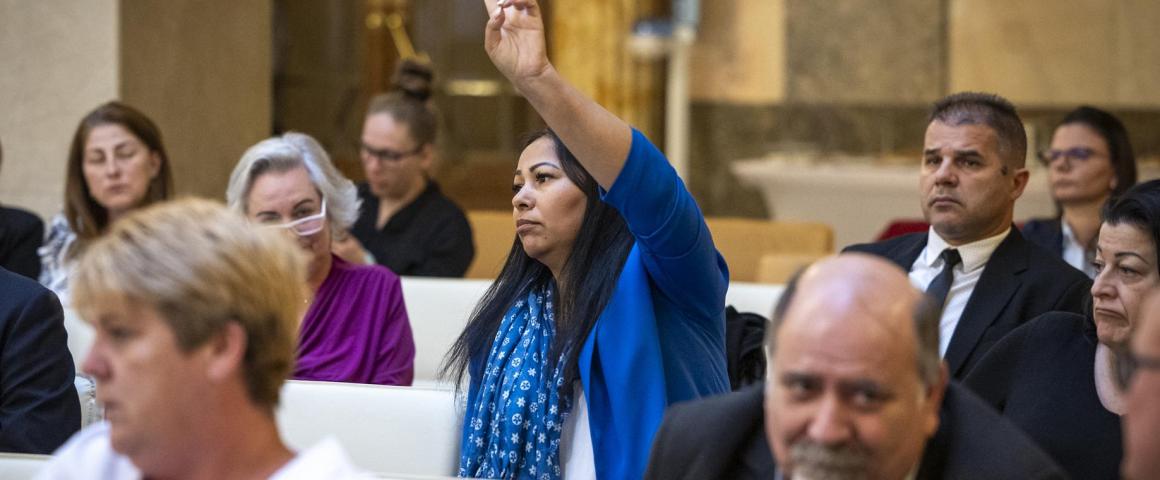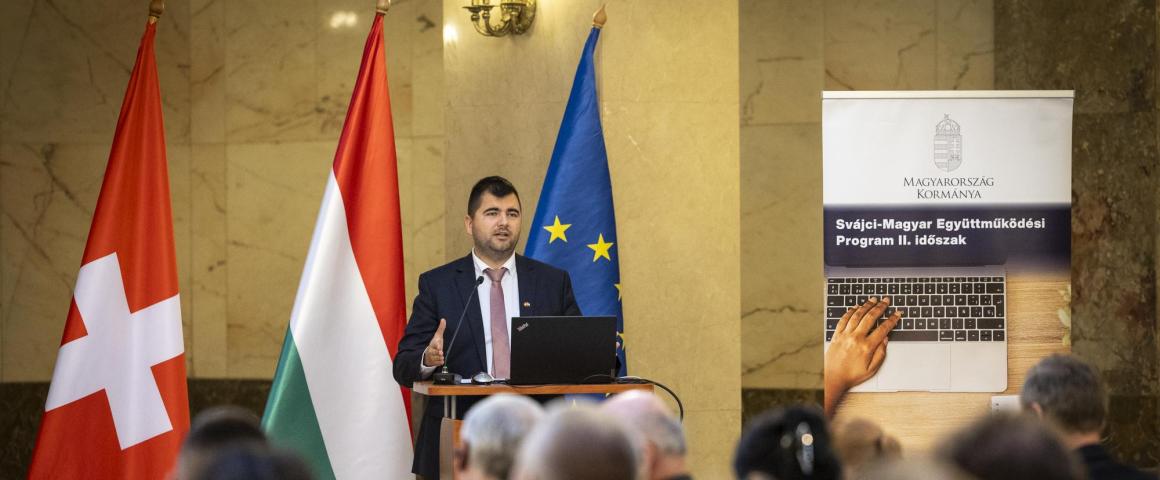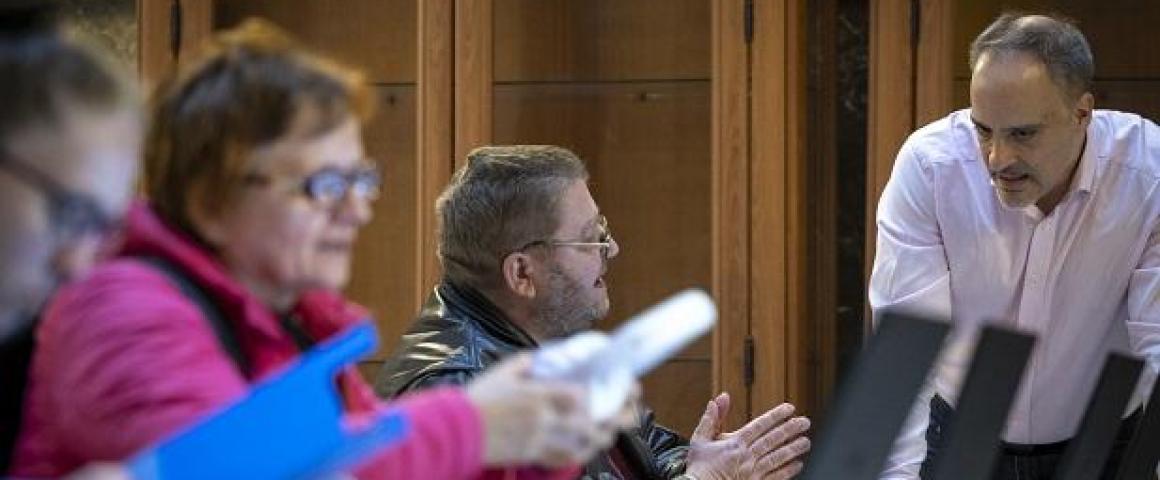On 7 May 2025, the opening event of the Swiss-Hungarian Cooperation Programme II. "Availability of digital spaces and improved digital competencies of disadvantaged groups Programme" took place at the Ministry of Interior
On 7 May 2025, the opening event of the Swiss-Hungarian Cooperation Programme II. "Availability of digital spaces and improved digital competencies of disadvantaged groups Programme" took place at the Ministry of Interior
The Programme aims to develop digital literacy among disadvantaged groups, including Roma.
The Programme consists of two parts: one is implemented by the Directorate-General for Social Inclusion (DGSI) designated in the Support Measure Agreement, with a total amount of HUF 815.932.771. The DGSI will develop and implement training courses, mainly online, to enable the disadvantaged people involved to use the main official digital online services (e.g. Ügyfélkapu+ [“Customer Gateway+”], DÁP [“Digital Citizenship”], KRÉTA [“Chalk”], EESZT [“Electronic Health Service Space”], etc.
Under the other component, the winning applicants (NGOs, churches and municipalities) will develop the physical conditions for online training (digital training/service points) and provide ongoing support to the disadvantaged persons involved to complete the training and subsequently to actually use the learning. For this component, applications could be submitted from August to the end of October 2024, with a budget of HUF 3.37 billion. Based on the independent assessors' assessments, the top 94 applications in the application ranking were selected for funding, with a further 16 proposals placed on a reserve list due to lack of resources. The vast majority of the organisations proposed for funding are NGOs.
The opening event was attended by around 150 participants, including representatives of the winning applicants. Representatives of the Swiss high-level delegation currently staying in Hungary, as well as Jean-François Paroz, Ambassador of Switzerland to Hungary, and Attila Sztojka, State Secretary of the Ministry of the Interior were also present.
The event was opened by Judit Tóth, Deputy State Secretary for EU Development Coordination of the Ministry of Interior and Head of the Programme Operator. In her welcome speech she presented the Programme and wished good luck for its implementation.
Attila Sztojka, State Secretary for Social Opportunities and Roma Relations of the Ministry of the Interior highlighted the importance of the Programme, presented its background and put the objectives and implementation in a policy context.
In his speech, Ambassador Didier Chassot, Assistant Director-General of the Swiss Agency for Development and Cooperation, confirmed that the Swiss side is also following the Programme closely and attaches great importance to its objectives, which are people-centred. He expressed his satisfaction with the smooth cooperation between the Hungarian and Swiss colleagues and wished them further successful work.
Dr. Gergő Korponai, Deputy Head of the National Coordination Unit, presented the Swiss Fund and the tasks of the institutions involved in the preparation and implementation of the Programme. In his speech, he stressed the role of Switzerland in reducing economic and social disparities and strengthening relations between the two countries.
The rest of the opening event included presentations on the next steps of the Programme, the development of the programme component implemented by the DGSI and the framework for cooperation between the DGSI and the end beneficiaries of the Programme. Afterwards, three winning applicants spoke about their method of engaging target group members and the support activities they use to help target group members complete the training and use what they have learned in their daily lives.
Throughout the programme, participants were able to freely try out the learning material on the use of the KRÉTA system on the computers in the lobby, with the help of DGSI expert colleagues. More than thirty participants took advantage of this opportunity.
After the presentations, the Programme Operator, the Intermediate Body and the DGSI experts answered the questions of the participants, and the opening ceremony and the rich professional programme were closed by Deputy State Secretary Edit Kovács.




